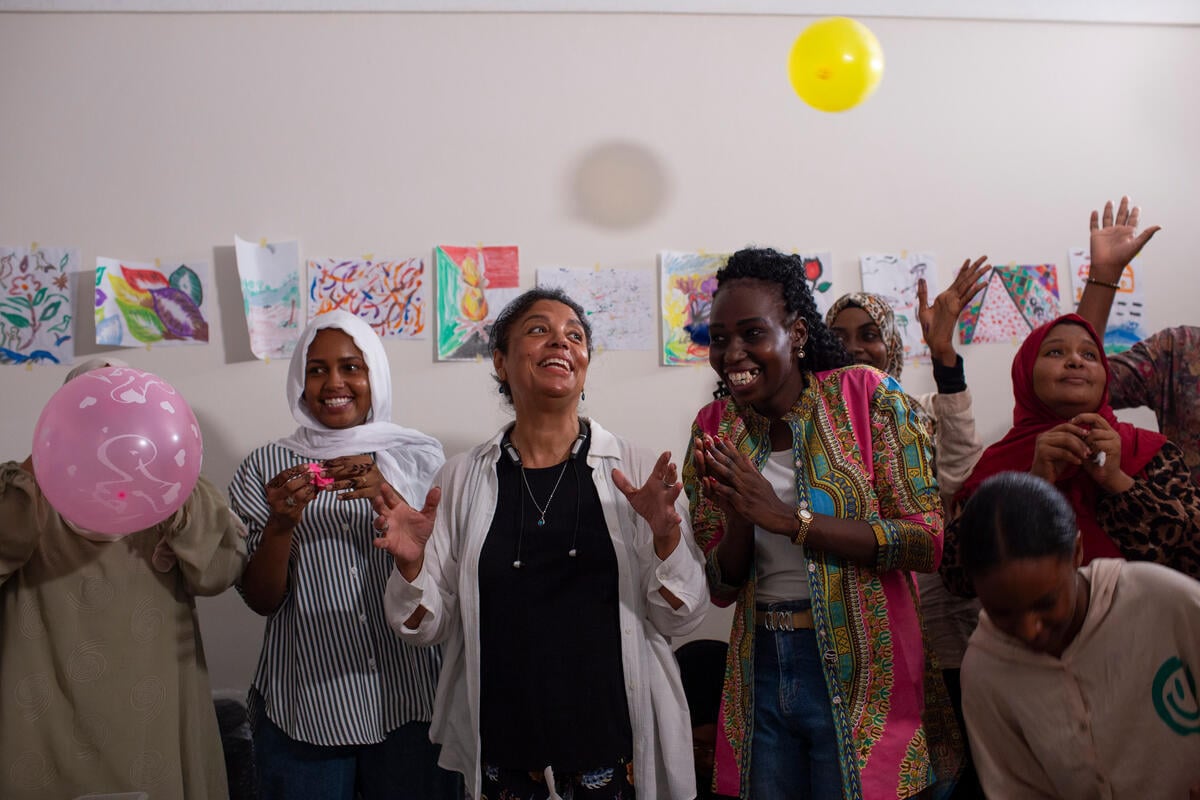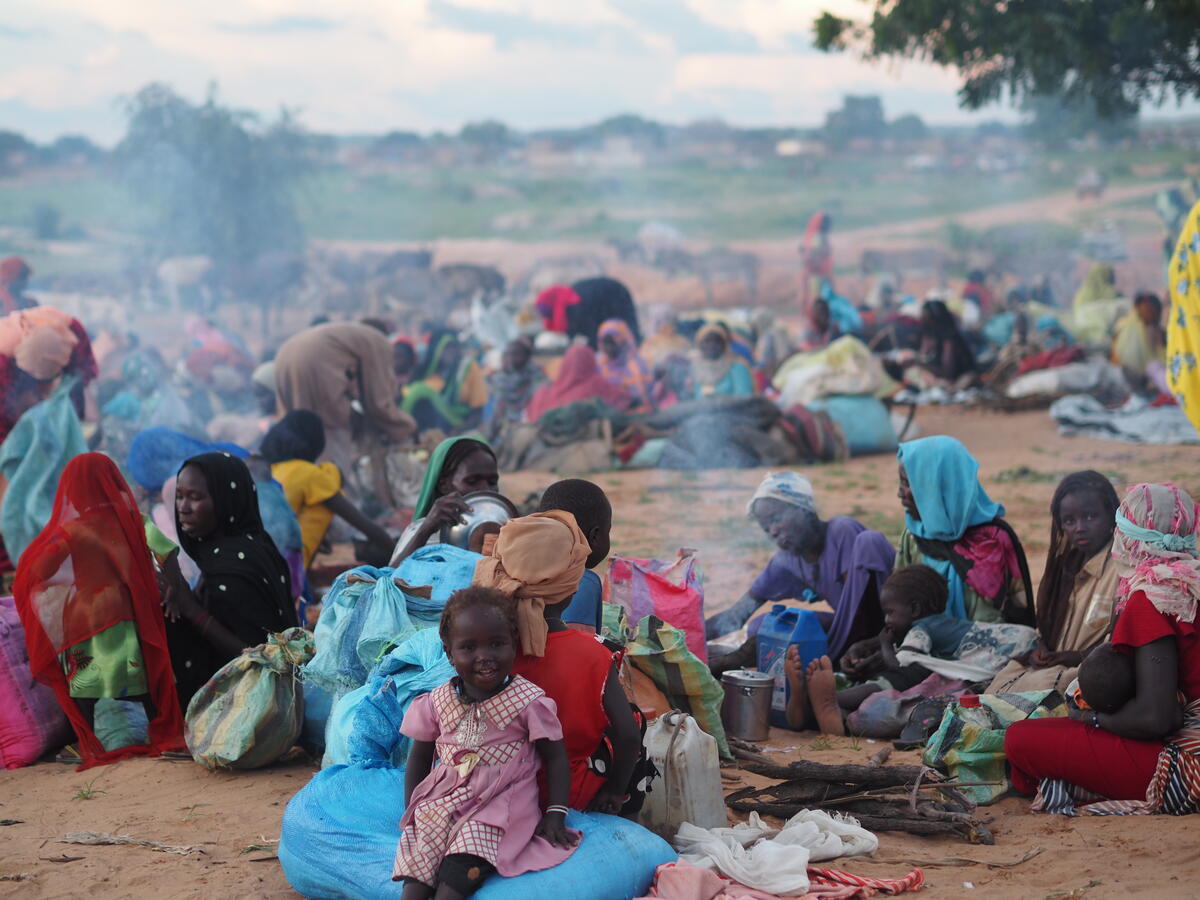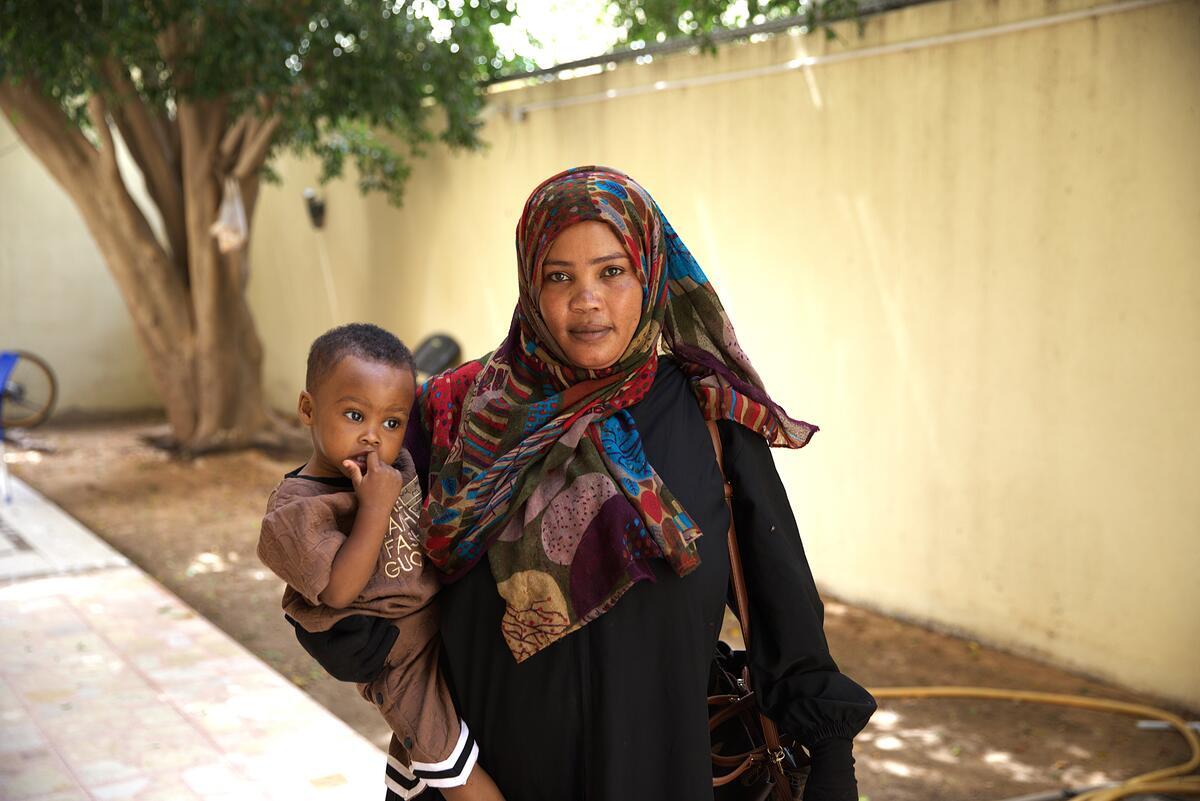Chad: Adré to Farchana move begins; Darfur: women's centre activities
Chad: Adré to Farchana move begins; Darfur: women's centre activities
Over the weekend, UNHCR began moving Sudanese refugees from the Chad border near Adré to Farchana camp some 70 km inside Chad because their resources were dwindling and they feared cross-border attacks from Sudan by janjaweed militias. In the first three days, we have transferred more than 700 people away from the affected border zone. Most of these refugees had previously wanted to stay along the border, where they had family members belonging to the same ethnic groups and sufficient land to graze their animals. But a short rainy season resulting in a poor harvest, the decimation of livestock from disease and attacks by janjaweed militia led many refugees to request they be transferred to the camps. In all, some 3,000 refugees are scheduled to be moved from the border to Farchana camp, which already houses 14,000 refugees.
In recent days, refugees have reported that the janjaweed have continued to cross into Chadian territory, essentially to steal cattle. In the town of Toukoul Toukouli where the refugees gathered this weekend for the transfer to Farchana, one refugee said that last week about 50 janjaweed on horseback stole around 1,000 head of cattle from six villages in the area. Other refugees in the region tell similar stories.
In addition to the planned UNHCR-organized relocation convoys, more than 7,000 refugees previously encamped along the affected border zone have moved on their own accord in the last six weeks to the camps, due to the lack of resources at the border. More than 5,000 have gone to Breidjing camp, and the rest have moved to Farchana, Iridimi, and Oure Cassoni camps.
Meanwhile, the transfer of refugees from the overcrowded Breidjing camp to a new camp at Treguine continues at a steady pace. Since the transfers began last Monday, about 2,500 persons living in the spontaneous arrivals section of Breidjing have been moved to Treguine. We are planning to move a total of 15,000 refugees to Treguine during the next six weeks helping decongest Breidjing, which currently holds about double its originally planned population of 20,000 refugees. We now estimate there are some 200,000 refugees in Chad.
In West Darfur, UNHCR and its implementing partner Save the Children, started activities at the first of seven initially planned women's centres in internally displaced persons [IDP] camps. The centres will provide a space for women to talk and to attend adult education classes including literacy classes. We also plan to incorporate income-generating projects for women which will benefit the whole community. This will include handicraft activities such as weaving, basket making, and soap making as many older women of the camp have expressed the need to pass on skills to younger women. The centres are also expected to establish close links with medical structures and staff to promote attendance at clinics.
It is hoped that ultimately the centres will also build confidence and trust and provide a refuge where women can begin to deal with issues of sexual and gender-based violence. IDP women have reported to NGOs and UN agencies that gender-based violence has been widespread since the beginning of the conflict in Darfur. They also report that this violence continues around the IDP camps, especially when women and young girls leave the camp to look for firewood, forage for their cattle, or water.
The first activities started on Monday at the Women's Centre in Ardamata Camp, on the outskirts of El Geneina. The camp numbers an estimated 35,000 IDPs. Each of the camp's four sections has a women's centre structure - a hut built with hay and covered with UNHCR plastic sheeting. On Monday, 184 women attended a maths class in one of the camp sections. Classes are taught by volunteers from the community. Two women, elected by the community for each centre with the approval of the sheiks, will regularly liaise with UNHCR and Save the Children-USA to voice the needs and concerns of the women from their community.
The women's centres are planned initially for Sirba, Seliah, Kundobe, Kirinding, Dorti, Riyad and Ardamata camps in West Darfur and will benefit some 6,000 women.









